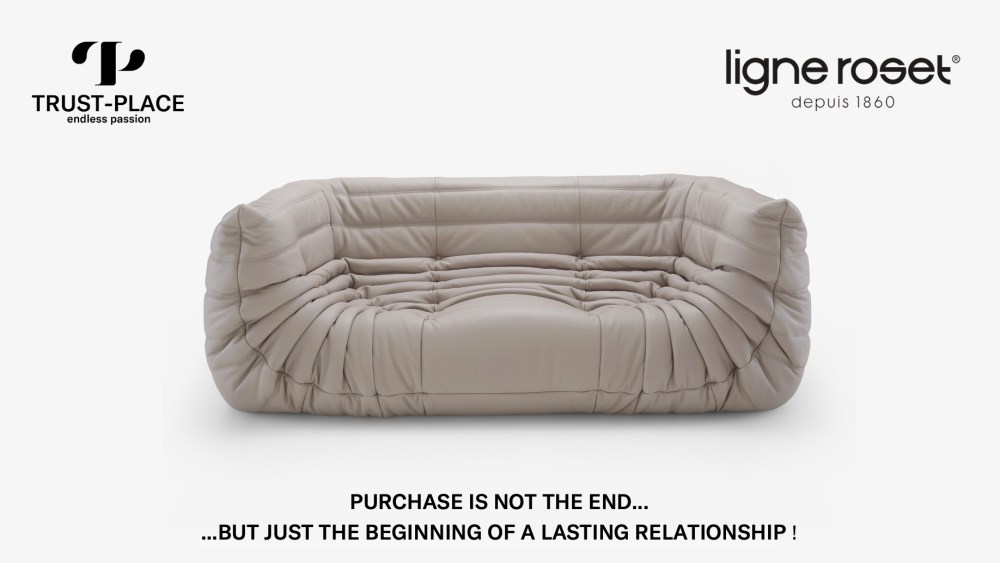MILAN — While many other luxury design companies seek to improve authenticity, traceability, integrate certifications and meet European Union requirements, French family-owned furniture company Ligne Roset said it has a length in advance.
On Tuesday, the manufacturer and distributor of contemporary furniture announced that it had signed a partnership with the traceability and post-purchase data company Trust-Place and produced its first digital passport, in a joint press release.
The company’s Togo armless loveseat is the first signature model to receive this identifier. The model was designed in 1973 by Michel Ducaroy, a legendary collaborator of the brand who stood out in the 1960s for his experimental sense of shapes and work with new materials.
The digital passport is integrated with a unique product identifier (QR code) and ownership details, which make each Togo sofa verifiable via a dedicated mobile app. The digital passport should also cultivate a relationship between the brand and its customers, providing a channel through which they can interact with the brand through experiences and events.
“Authenticity and transparency are at the heart of our development strategy,” said Antoine Roset, CEO of Ligne Roset. “Thanks to digital certificates and this partnership with Trust-Place, we can guarantee our customers that each piece that leaves our workshops is authentic, while creating a lasting bond with them.
The company began in the 1860s, when the family patriarch, Antoine Roset, established a small factory manufacturing canes for parasols. He then bought property in Montagnieu, France, near Lyon, and after the turn of the century, when women abandoned parasols, he began making chairs.

Togo sofa by Ligne Roset.
Courtesy of Ligne Roset
In October, two Italian luxury furniture manufacturers – Poltrona Frau and Savio Firmino – joined the Aura Blockchain Consortium as associate members. Like many other luxury players, they are working to improve authenticity, traceability, integrate certifications and meet the requirements imposed by new European Union environmental regulations specific to the sector.
At the time, the Switzerland-based consortium said each company would soon implement its own bespoke Digital Product Passport, or DPP.
Trust-Place, based in Marseille, France, was created by Gaelle Delore and Didier Mattalia in 2020 and works with luxury companies across all areas, including fashion and electronics.
The European Commission’s regulation on ecodesign for sustainable products, which came into force in July 2024, aims to make transparency and traceability a regulatory requirement for any luxury brand selling in the European market. Under such regulation, many products in the EU will have to be accompanied by a digital product passport by 2027.

